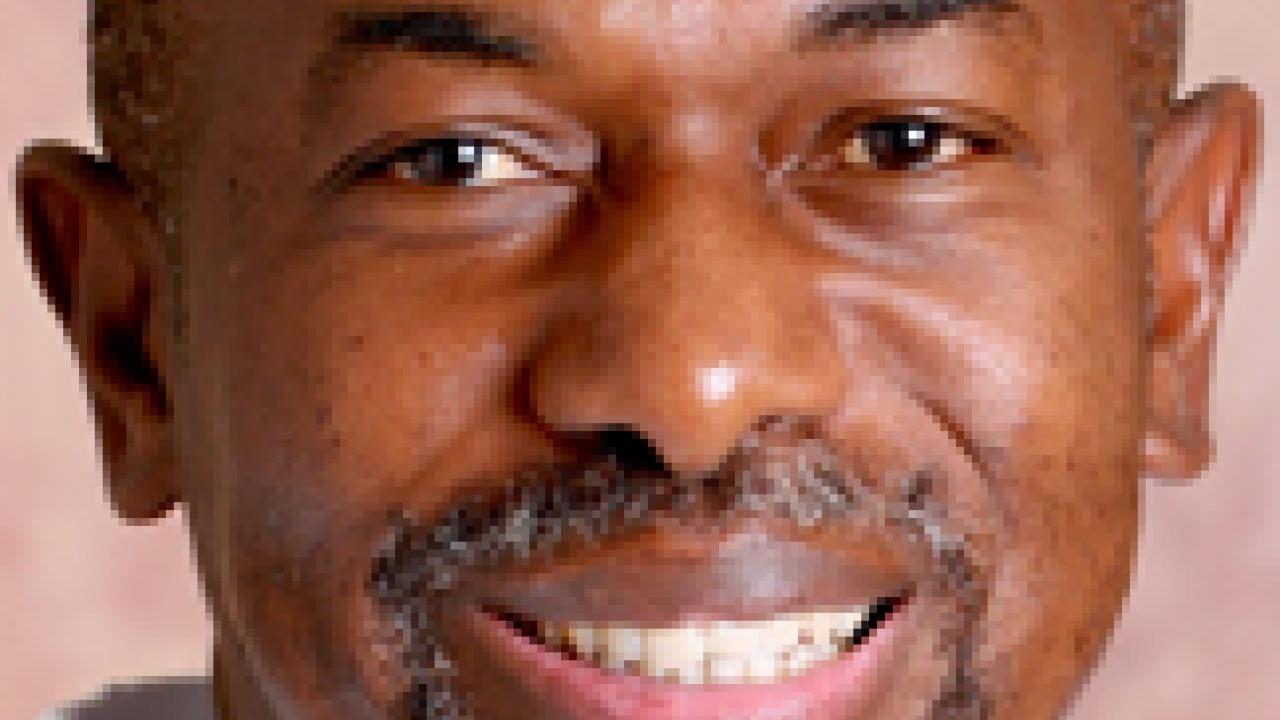James E.K. Hildreth, an immunologist and professor at Meharry Medical College in Tennessee who directs its Center for AIDS Health Disparities Research, has been named the new dean of the UC Davis College of Biological Sciences.
Hildreth’s area of expertise is how HIV, or human immunodeficiency virus, enters cells and causes infection. In 2001, while serving as chief of the Division of Research for the National Institute of Health’s National Center on Minority Health and Health Disparities, Hildreth and his research team made an important discovery related to HIV, which causes AIDS.
The team found that cholesterol is active in HIV’s ability to penetrate cells and that removing the fatty material from a cell's membrane can block infection. Hildreth’s team has used this discovery as the basis for developing topical microbicides — or chemical condoms — to block transmission of the virus.
Chancellor Linda P.B. Katehi and Provost Ralph Hexter announced Hildreth’s appointment on Thursday (June 2), praising his accomplishments and exceptional skills. "James joins us at a time of great opportunity for UC Davis and for the College of Biological Sciences,” Katehi said. “Under his guidance, I am confident that the college will achieve a leadership position both nationally and internationally through innovation in education and research and commitment to public service.”
Hexter, who oversaw the search process, highlighted Hildreth’s achievements: “James’ resume and experience in the lab and in the classroom make him the ideal candidate to lead and mentor a faculty and student body that represent the promise of biological sciences across our nation and around the world.”
UC Davis is among the nation’s leading universities in graduate and undergraduate education in the biological sciences. UC Davis typically is one of the top five universities each year in the number of doctoral and bachelor degrees conferred in the biological sciences.
At the College of Biological Sciences, Hildreth will serve as dean to 125 faculty, 5,312 undergraduates enrolled in 10 majors, 455 graduate students enrolled in eight graduate groups and 397 full-time equivalent staff. He will manage an annual budget of nearly $90 million, including nearly $60 million for research. The college also boasts more than 32,800 alumni. Hildreth will also hold faculty appointments in two departments: Molecular and Cellular Biology, and Microbiology. Hildreth will join UC Davis on Aug. 1.
For his part, Hildreth says he relishes the opportunity to work with a large student population at Biological Sciences, particularly the 5,300-plus undergraduates enrolled in the college.
For example, he said, when he served earlier in his career as associate dean for Graduate Student Affairs at Johns Hopkins University’s School of Medicine, he created a summer research program for underrepresented minorities and was active in recruiting undergraduate students for graduate programs.
“Almost every year, I invite a few undergraduates to work in my lab,” added Hildreth, who will continue his work at UC Davis on microbicides as well as research on how cholesterol controls the genes of HIV. “Undergrads ask the questions no one else thinks to ask, and sometimes they come up with the answers no one else has thought of. They bring their own particular energy and spark to the lab work and the discussions.”
Hildreth has been affiliated with several prestigious universities, beginning at Harvard University, where he graduated magna cum laude in chemistry in 1979. He then went to Oxford University in England as a Rhodes scholar, where he earned his doctorate in immunology in 1982. Five years later, he earned his medical degree at Johns Hopkins’ School of Medicine in Baltimore. He joined the faculty at Johns Hopkins full time after graduation. Hildreth is a member of the Institute of Medicine, part of the National Academy of Sciences.
He joined Meharry’s medical school faculty in 2005, with joint appointments in the departments of Internal Medicine, and Microbiology and Immunology. That same year, he accepted the directorship of Meharry’s Center for AIDS Health Disparities Research.
Meharry Medical College, in Nashville, Tenn., is a historically black academic health science center of about 790 students and 218 full-time faculty that is home to a medical school, dental school and its School of Graduate Studies and Research.
In addition to his academic appointments and post with the AIDS research center, Hildreth’s other positions at Meharry include: program director, Research Centers in Minority Institutions; director, Meharry Center for Translational Research; and associate director, Vanderbilt-Meharry Center for AIDS Research. In addition, Hildreth is an adjunct professor of pharmacology and molecular sciences at the Johns Hopkins University School of Medicine.
At UC Davis, Hildreth will replace Ken Burtis, who has served as dean of the College of Biological Sciences since its establishment in 2005. Burtis is a UC Davis alumnus (’76) who joined the genetics department in 1988, after returning from graduate study at Stanford University. During Burtis’ tenure as dean, the college has enjoyed a more than 40 percent growth in its annual extramural research budget. Serving as lead dean for the Genome Center, the Center for Neuroscience and the Center for Population Biology, he has worked to strengthen research collaborations with the other schools and colleges at UC Davis.
Burtis will take a one-year administrative leave, during which he will focus on his research and two Howard Hughes Medical Institute-sponsored programs to increase research opportunities for underrepresented and disadvantaged students, and to develop new approaches to premedical education. The following year, he plans to begin teaching an introductory biology course that typically attracts 500 students.
Hildreth, as dean of the College of Biological Sciences, will receive an annual base salary of $350,000. In keeping with UC policy, additional compensation will include professional and career development, a relocation allowance, temporary living assistance, moving expenses and eligibility for a Mortgage Origination Program loan.
Media Resources
Mitchel Benson, (530) 752-9844, mdbenson@ucdavis.edu
